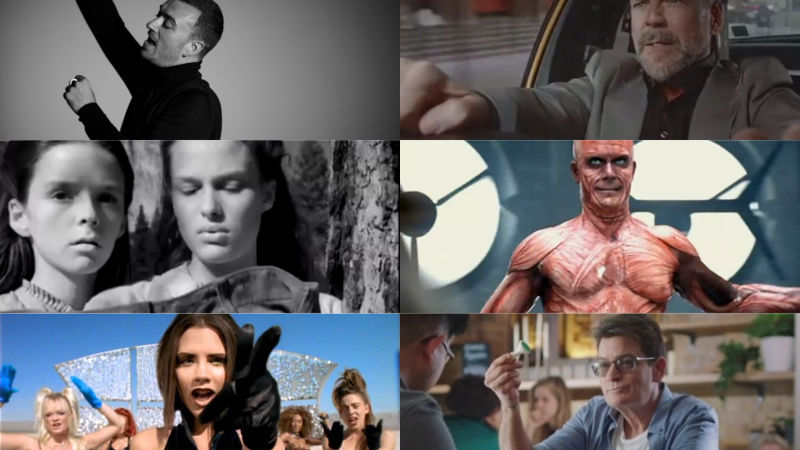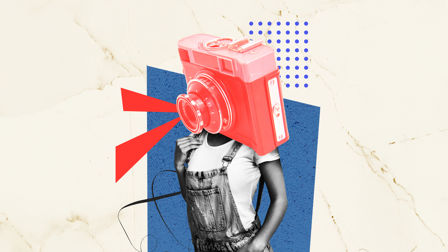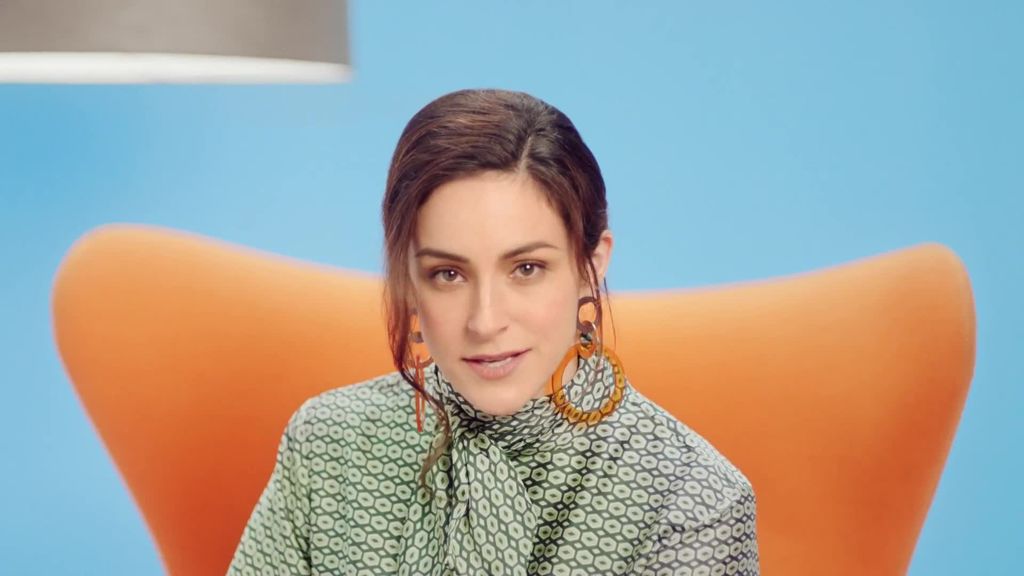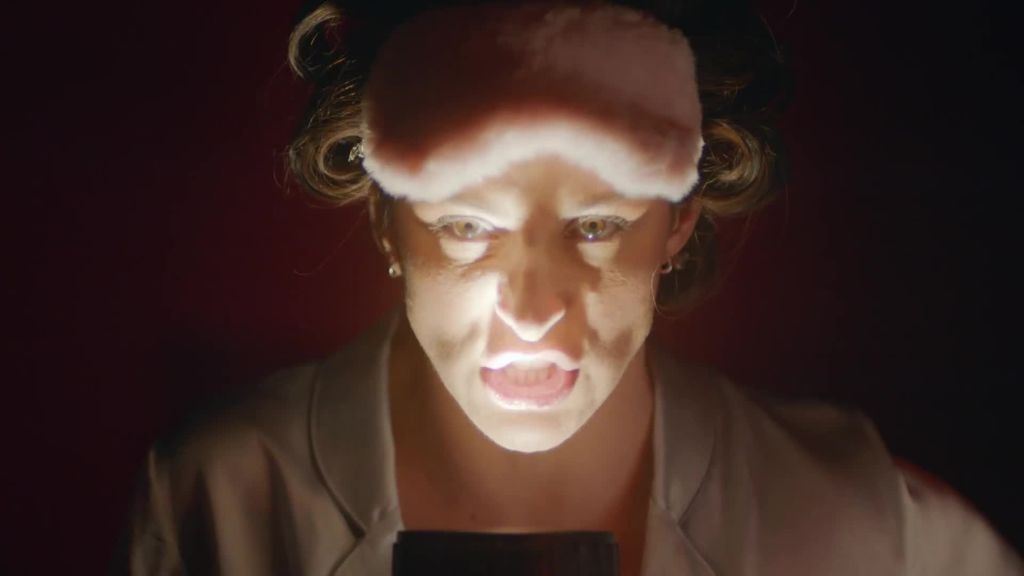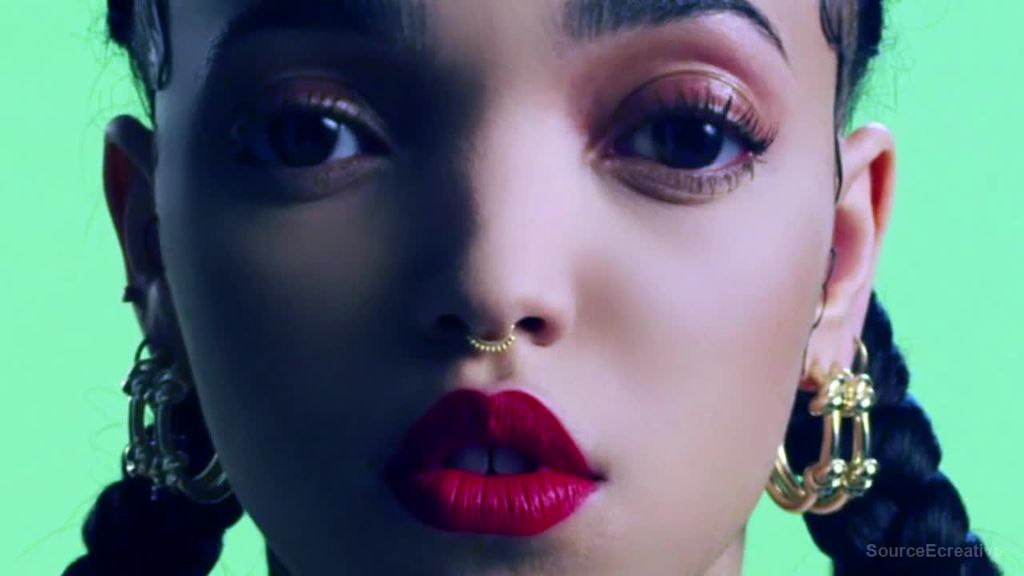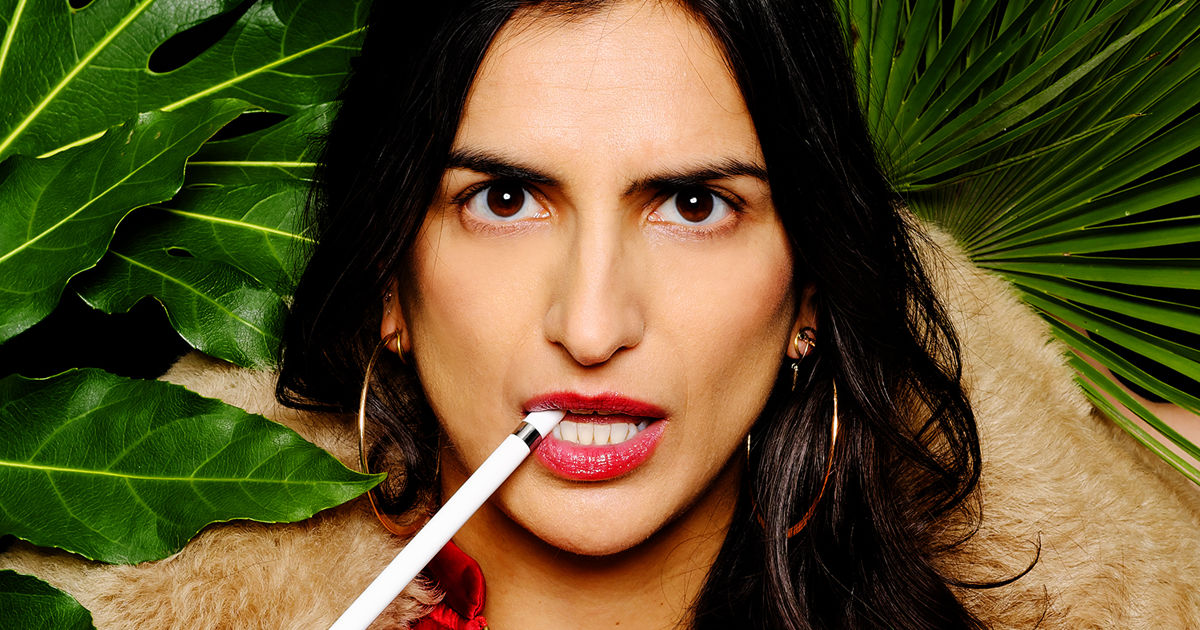Shimmy Ahmed: how an obsession with music led to a passion for fashion
From working on fashion titles like Elle and Twin Magazine to collaborating with Alexa Chung and FKA Twigs, director Shimmy Ahmed casts a liberal sprinkling of sass and swagger across everything she touches. For our Fashion Special, she tells Natalie Mortimer about her work, inspiration and how she intends to connect rural India and Brexit Britain through style and storytelling.
Like many teenagers Shimmy Ahmed couldn’t get enough of listening to music. Growing up in the commuter town of Maidenhead, she’d spend hours listening to RnB and Hip Hop.
But unlike many teenagers, Ahmed first entered the industry at the tender age of 15, working at KISS FM in London as a broadcast assistant on shows such as David Rodigan’s Drive Time and Steve Jackson’s Morning Glory. It was here that her love of fashion was born.
I thought I was going to walk into a job at MTV or something, but I didn't. It was pretty distressing, to be honest, and I had to start again at the bottom.
“What I found really interesting was that each genre of music has its own distinct style associated with it, whether it be the baggy streetwear aesthetic of hip-hop or the more put together style of mods or soul singers,” recalls Ahmed. “I really started to get an understanding of fashion through music.”
Alongside music, the teenage Ahmed had a keen interest in film, asking for a video camera for her birthday one year. “I used to shoot everything,” she says. "I went back to see family in Pakistan and I took the camera there and that was where I got really into film and moving image.”
Credits
powered by
- Agency In-House
- Production Company Little Dot Studios
- Director Shimmy Ahmed
-
-
Unlock full credits and more with a Source + shots membership.
Credits
powered by
- Agency In-House
- Production Company Little Dot Studios
- Director Shimmy Ahmed
- DP Chris Fergusson
- Sound Design George Watts
- Talent Alexa Chung
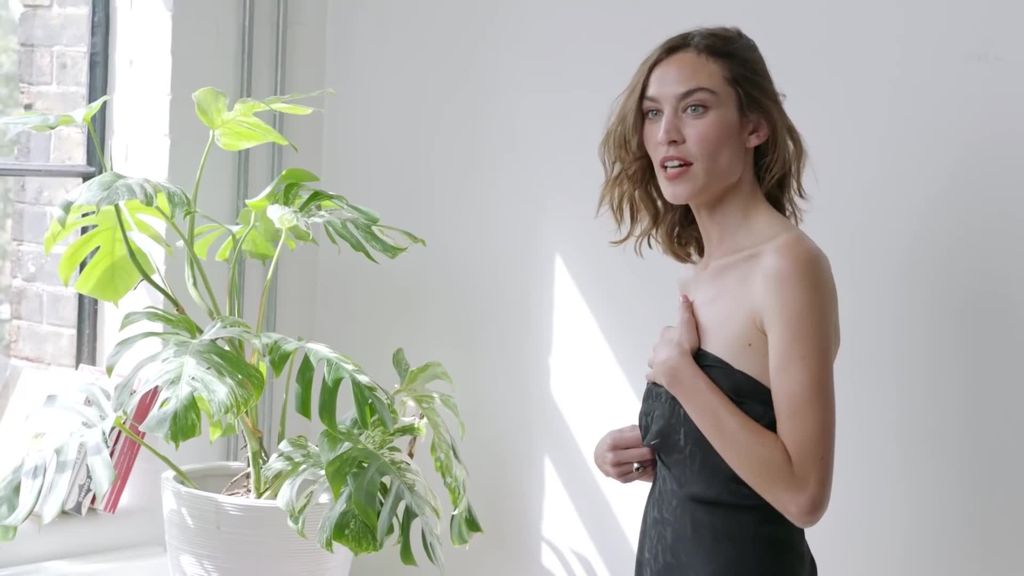
Credits
powered by
- Agency In-House
- Production Company Little Dot Studios
- Director Shimmy Ahmed
- DP Chris Fergusson
- Sound Design George Watts
- Talent Alexa Chung
Above: Ahmed's film for Alexa Chung's Style Challenge.
Combining these passions, a degree in media at Brighton University followed and Ahmed quickly found herself in the TV industry, working as a production coordinator on a short film, and then for an independent Sky digital channel - working on producing/directing; experimental music formats, featuring mixes by DJs such as Bonobo, Derrick Carter and visual FX by Plastic Reality and working with Mary Anne Hobbs on a live music review show called JAMZ.
But smooth waters turned into rough seas when she left Brighton for London’s city lights. “I thought I was going to walk into a job at MTV or something, but I didn't,” she says. “It was pretty distressing, to be honest, and I had to start again at the bottom.”
[Fashion] films, for me, are about about evoking a mood and being creative.
Ahmed moved in to working as a PA, getting her first role at production studio Spring 69, under director Anthony Shurmer. Well-known for its fashion films for brands such as Mulberry, Agent Provocateur, Levi’s and House of Holland, Spring 69 gave Ahmed her first taste of creating content for a genre that had traditionally pushed its marketing pounds into magazines and television.
“He loved my eye and would get me fully involved in the creative,” recalls Ahmed. “That’s really where my love for fashion content came from. The stuff he was making and how he was making it was just really cool.”
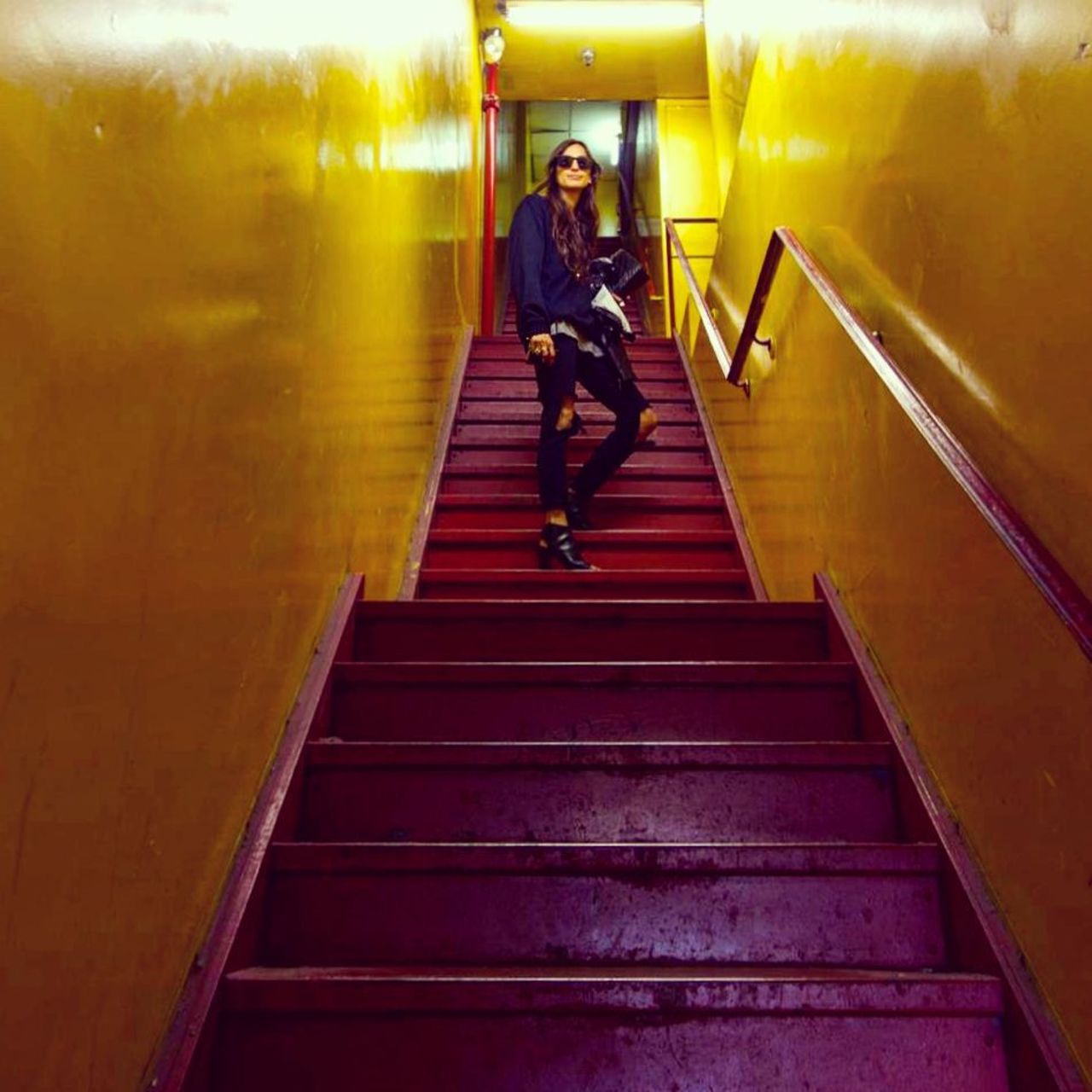
Above: Shimmy Ahmed.
Roles at magazines and publishers followed, with Ahmed picking up her camera again for Elle, Wonderland, Dazed & Confused and Vogue. Over the past decade she has cemented her reputation as a gifted interpreter of mood, style and philosophy.
So, what is it about fashion content that is so alluring? “I just think you can be so creative,” she says. “The films, for me, are about about evoking a mood and being creative. I think fashion films are really important, because the consumer wants to see how clothes look and feel on the body and how they move with the person.”
The film was more about the idea behind the clothes than the clothes themselves... it was more about what the women had to say.
While all of the films Ahmed has shot have their own moments of magic, her work for label Tabula Rasa, which she shot for Vogue's Fall/Winter 17 Video Fashion Week, is unmistakably Ahmed’s. Called Blank Slate Moments, the film stars Lydia Pang, Yasmin Green and Apphia Lewis talking about seminal moments in their lives against the backdrop of New York City.
Shot on digital and VHS, the film looks and feels intimate, almost like a home movie, with a grittiness that contrasts with the luxuriousness of the textiles and clothes.
“We just ran amok around New York,” recalls Ahmed . “The film was more about the idea behind the clothes than the clothes themselves; obviously the clothes featured, and they looked great and the women looked great in them, but it was more about what the women had to say.”
Above: Tabula Rasa, which Ahmed shot for Vogue's Fall/Winter 17 Video Fashion Week.
It’s not just moody, gritty films that are in Ahmed’s armoury. Her projects also straddle the worlds of comedy and fashion, with recent work for Sloggi and Spoke showing off her ability to extract colourful and witty performances from actors whilst playing with art direction and nuanced styling.
The six mini-episodes for Sloggi feature comedian Janine Harouni whose comic timing “was next level”.
When you get to a certain point in your career it's up to you to make sure that happens.
“We worked together super-well and the creatives on the project were great. They totally trusted me with my vision and just let me go forth and conquer,” says Ahmed. “It was a wonderful project to be a part of and it's one of the biggest things I've probably done in fashion.” But the project wasn’t without its challenges. “There was definitely a lively discussion around the demographics of the casting,” says Ahmed. “I put my foot down and said Janine (who is half Lebanese) was the only person who can nail the comic timing - she’s so brilliant and funny - she was the perfect choice.”
Everyone is trying to make fashion films these days and some are going in there with a limited understanding of production processes and that can be really frustrating.
“When you get to a certain point in your career it's up to you to make sure that happens. I think when you are new into the industry that is really difficult because you don't want to upset anyone, but now I am not so bothered about that, I just want to make good stuff and I’m at the stage where I can choose the people I want in front of my lens.”
Sloggi – Bra History
Sloggi – Dark-ages
Twigs – Water Me
Above: Ahmed's work for Sloggi.
Ahmed would also like to see more women in the industry, in particular brown and black women. “There are lots of them working, but I don't see many of them in the public eye, which is a shame. But I think that is changing as time goes on and it's certainly changed a great deal since I started.”
Aside from diversity, one of Ahmed’s biggest gripes about the fashion film industry is a lack of understanding when it comes to the traditional filmmaking process.
2019 heralds a new chapter for Ahmed, having recently joined production company Fat Lemon.
“That can make our jobs as directors very difficult because a lot of the people who are commissioning the content think they get it but they don't,” she explains. “Everyone is trying to make fashion films these days and some are going in there with a limited understanding of production processes and that can be really frustrating.”
2019 heralds a new chapter for Ahmed, having recently joined production company Fat Lemon – whose portfolio includes commercials for Twitter, Swisse, Knorr, Ballantine’s and Radio 1.
She’s also working on her first feature film, based loosely on her own family history. The story focuses on displacement and being a refugee, and begins around the time of the partition of India and Pakistan and continues to present day in the UK.
“It’s about generations who have been affected by the partition and bringing that into present-day south-east England - Brexit London specifically - and looking at the similarities and differences in a very subtle way,” explains Ahmed.
“The story has always been told, but it's been told from a very political point of view and my story is really focussing on family experiences. But I won’t be forgetting my roots in both music and fashion, and both elements with be integral to the style and storytelling.
“Just imagine,” laughs Ahmed, “rural India to present day London!”
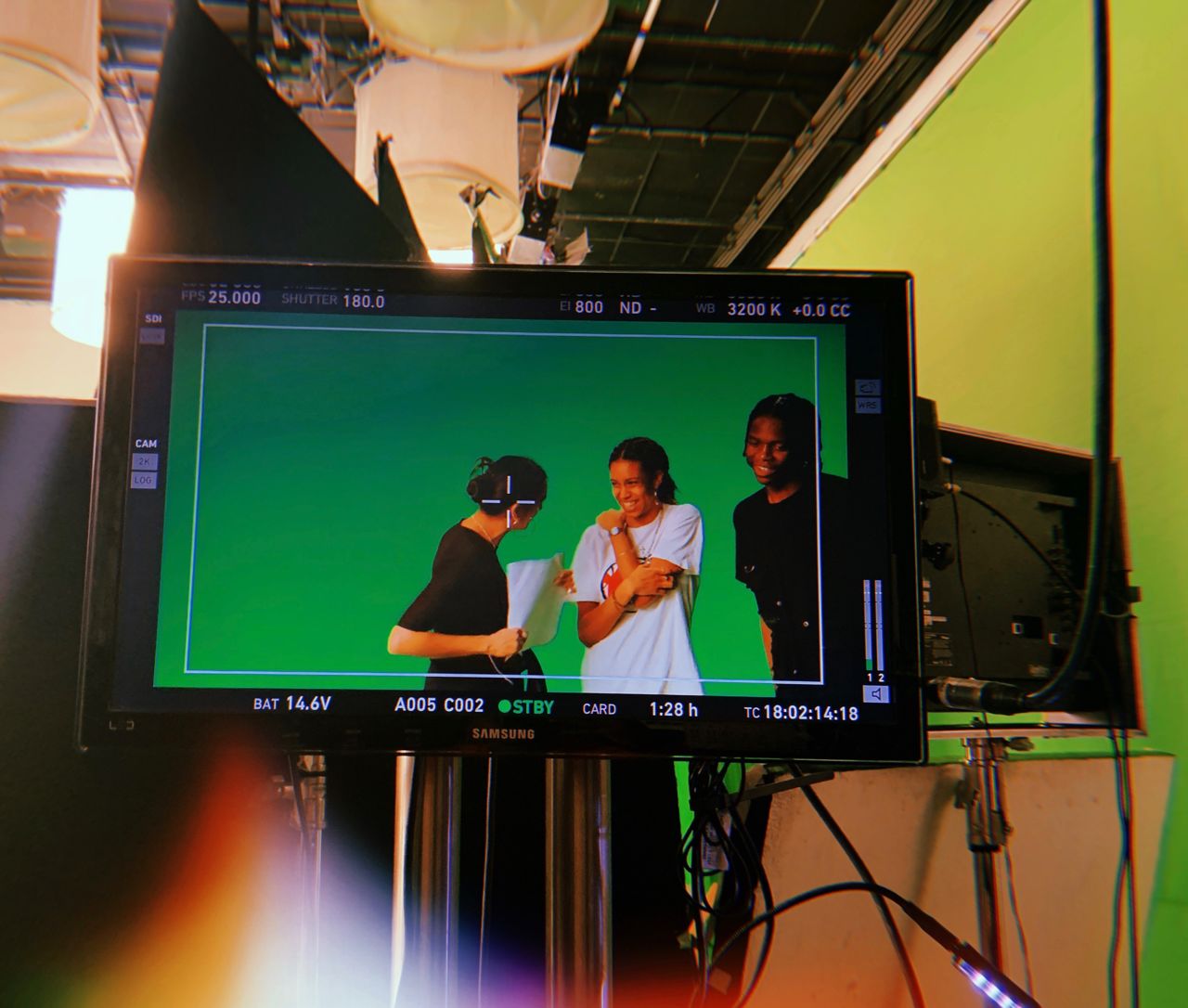
)

